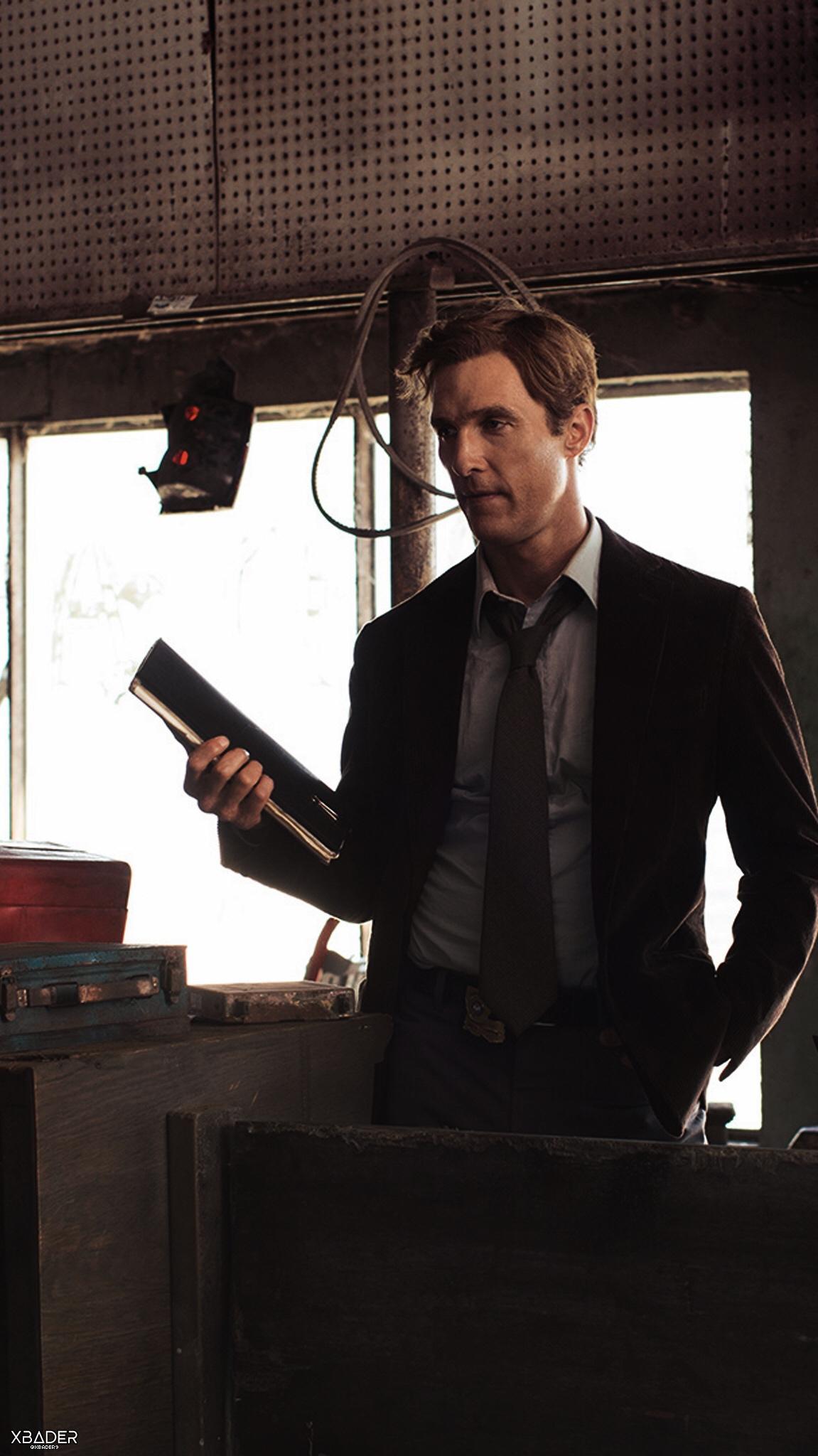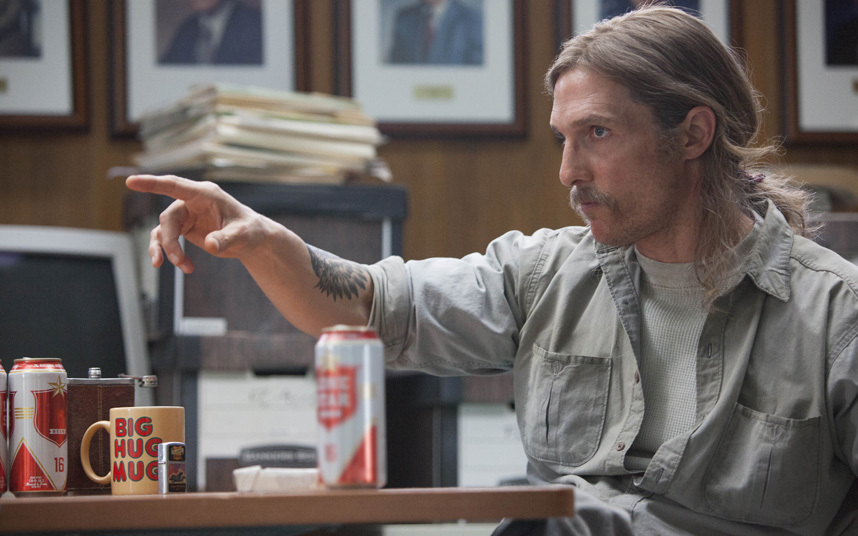

It is also likely that he sees hypocrisy as the norm and is attuned to delusion as the natural state of the human mind. He is not at home in the world, expects nothing from it, and has a fundamental mistrust of all discourse of hope. We would also know that he sought out these texts perhaps after being dissatisfied with more mainstream mediations on our place in the universe. We would know that he is drawn to the extreme fringes of philosophical speculation and that much of the material he is reading is unpalatable to most people. True Detective creator Nic Pizzolatto has recently talked about texts that influenced his writing of Rust, describing him as an “anti-natalist nihilism.” What can we learn about Rust as a person informed by works like Jim Crawford’s Confessions of an Antinatalist, Eugene Thacker’s In the Dust of this Planet, David Benatar’s Better to Have Never Been? There are some tensions between these positions, but common to both is the idea that we are puppets at the mercy of wider forces. In many ways, the self is the micro-scale of this nightmare and time is the macro-scale that he also touches on in terms of a ceaseless loop. Once you grasp that, and truly believe it, then you cannot help but see the self as akin to being trapped in a kind of nightmarish loop. I see this strain throughout his monologues that life is a trap, a dream, or a program.
#Rust cohle free#
For example, Ligotti buys the arguments of some contemporary neuroscientists, which Rust would surely be familiar with, that there is no self and there is no free will. However, this only works if you have been through the mill of these texts. I am sure that to many people that dialogue may have felt cheesy or obvious, but as a visualization of what the pessimist ultimately holds - that death is to be welcomed - it is pitch perfect and signals, to me, some wrestling with philosophical questions.

The idea that they would have welcomed it, that they were being released, is a very Ligotti-esque notion, but one that would have chimed well with many pessimists. Perhaps the second stand-out scene in this regard is his meditation on the eyes of murder victims. However, we witness a generalized pessimism throughout the interviews. In many ways, it’s a paraphrase of the central argument of that text. It would have sounded eerily familiar to anyone who has been exposed to Thomas Ligotti’s The Conspiracy Against the Human Race. Īre there specific scenes or bits of dialogue that made you realize that True Detective was a show actually wrestling with philosophy versus simply throwing around words to sound heady? I’ve always been of the opinion that when you get down to it, everyone agrees, in their very bones, with Rust. However, grim television is not unknown, so I suspect what works here is just how nihilistic Rust’s pronouncements are you simply don’t hear people arguing we should walk hand-and-hand into extinction on television very often. There is a pressure to offer pockets of hope, redemption, or escape in our narratives, but True Detective seems intent on withholding that. Rust has a willingness to speak openly about ideas common to us all, but ones we are usually expected to suppress.
#Rust cohle tv#
What makes True Detective a TV show worth analyzing on a philosophical level? Which may be pointless - because what is reality anyway? in philosophy from University College Dublin, to help us digest True Detective’s grand ideas and boil down Rust’s worldview into something founded in reality. Ennis, an author and academic who holds a Ph.D. It’s easy to forget there may be answers at the end of True Detective’s tunnel when McConaughey continues to drop foggy poeticisms with such grace.īut do Rust’s nihilistic ruminations reflect a founded philosophical doctrine or is he spewing pure bunk? Is nihilism even the right word for it? With vague philosophy running through its veins, we asked Paul J.

Life, death, religion, love, the fourth dimension, man’s physical self as a conduit for violent action - Rust has a line for every topic and, thankfully, is always willing to share. While True Detective is heralded for its slow-burn mystery shrouded in atmosphere as thick as the bayou, half the fun of an episode is waiting to see which metaphysical concept Rust will tackle in monotone soliloquy. “I think human consciousness is a tragic misstep in evolution,” mutters Matthew McConaughey’s Rust Cohle in his version of ride-along small talk with partner Marty Hart (Woody Harrelson).


 0 kommentar(er)
0 kommentar(er)
